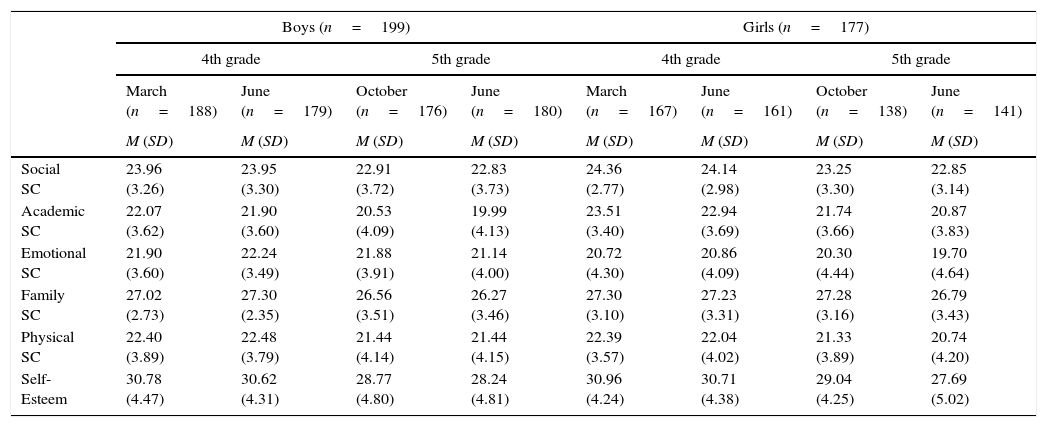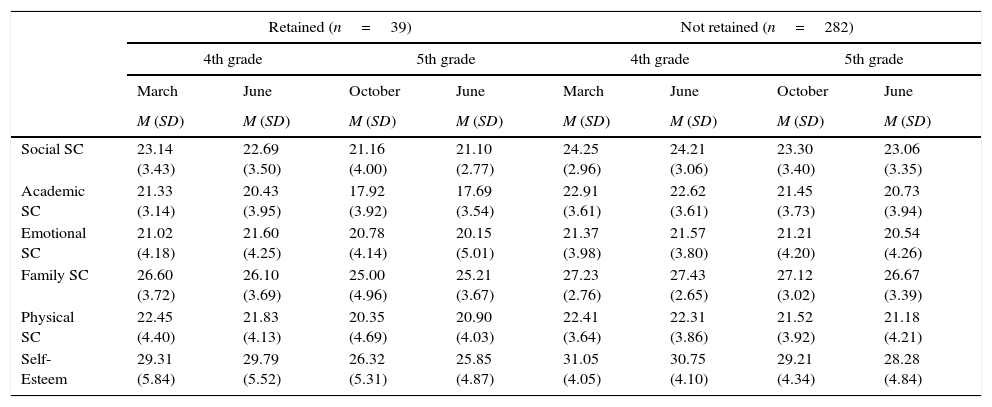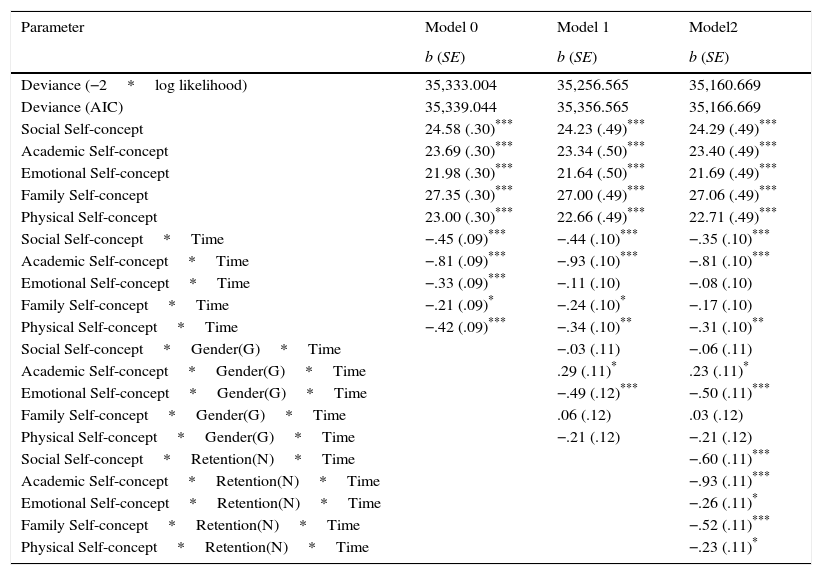Secondary school transition takes place earlier in Portugal than in most Western countries. This study aims to analyze the impact of this transition on the self-concept and self-esteem of Portuguese students, and to identify potential differential gender impacts. The sample included 377 students (Mage=9.46; SD=.93; 52.8% boys). Self-report questionnaires were administered in 4th grade (middle and end) and 5th grade (beginning and end). Multilevel linear modeling with a repeated measures design was used to evaluate the evolution of self-perceptions during secondary school transitions. Results show significant decreases in all dimensions of self-concept and in self-esteem during this transition. Gender differences emerged with boys showing greater decreases in emotional self-concept and girls in academic self-concept. Students retained at the end of 5th grade had greater declines in all self-perceptions. The results highlight the importance of intervention to prevent the negative impact of secondary school transition on self-perceptions.
A transição para o 2° ciclo tem lugar em Portugal num momento anterior ao da maioria dos países ocidentais. Este estudo teve como objetivo analisar o impacto desta transição sobre o autoconceito e auto-estima dos alunos Portugueses, bem como identificar potenciais efeitos de género. A amostra incluiu 377 alunos (Mage = 9.46; SD = 0.93; 52.8% rapazes), aos quais foram aplicados questionários de autorrelato no 4° (a meio e no fim) e 5° ano (no início e no fim). Para avaliar a evolução das autoperceções foram utilizados modelos lineares multinível. Os resultados mostram diminuições significativas em todas as dimensões do autoconceito e na auto-estima com a transição. Existiram diferenças de género com os rapazes a apresentarem maiores reduções no autoconceito emocional e as raparigas no autoconceito académico. Os alunos retidos no 5° ano tiveram decréscimos maiores em todas as autoperceções. Os resultados ilustram a importância de intervenções preventivas na transição para o 2° ciclo de forma a reduzir o impacto negativo destas sobre as autoperceções.









